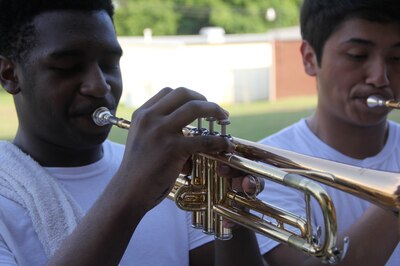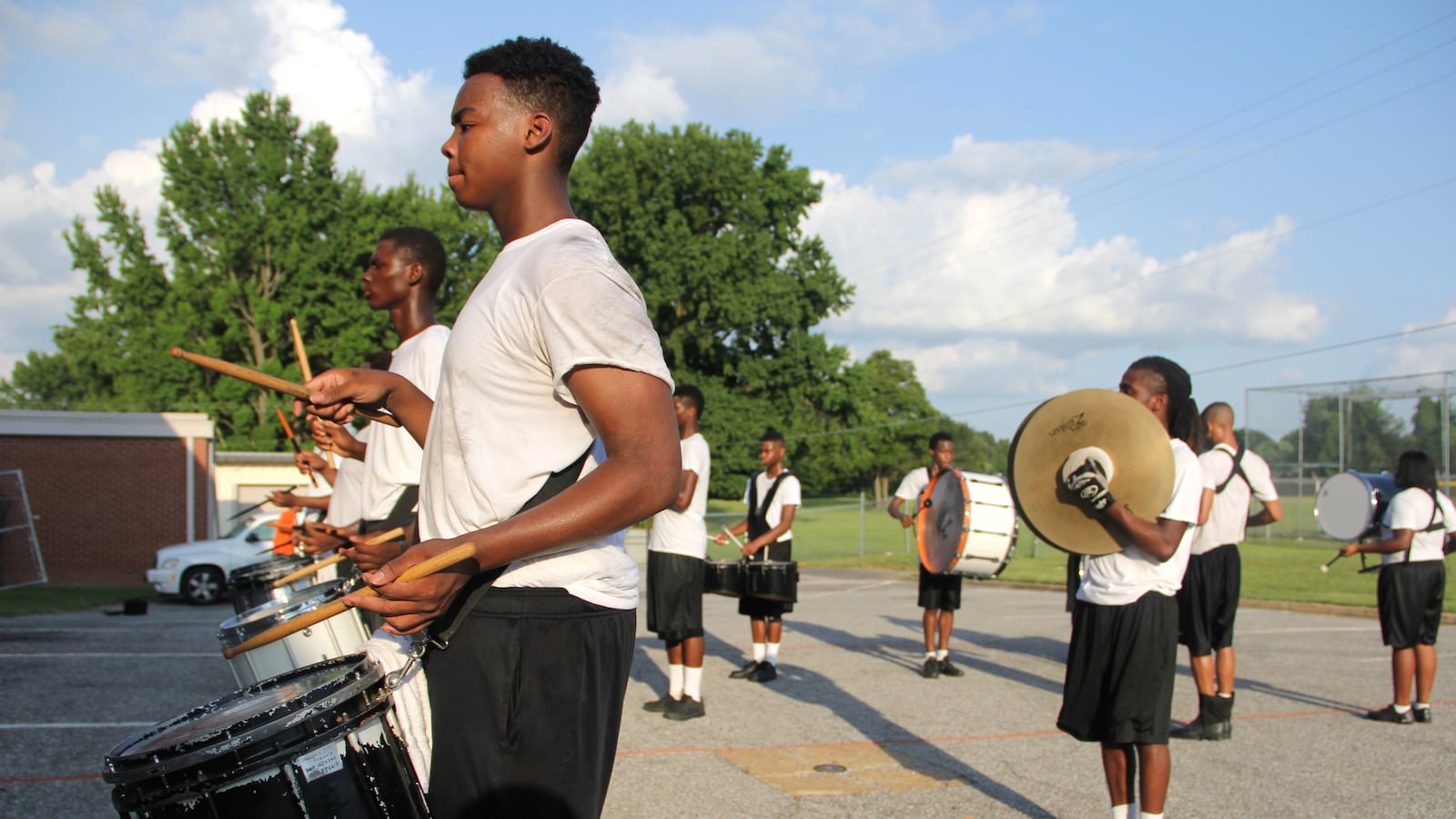Fresh from an outdoor practice on a grassy common area at Fairley High School in Memphis, Dedrick Jones puts aside his baritone for a moment to reflect on what being in the marching band means to him.
“It teaches me how to stay committed toward a common goal with an entire group,” said Dedrick, a 16-year-old junior.
Dedrick is fortunate.
Band could have been eliminated from Fairley’s extracurricular activities in 2014 when the school was converted to a charter school under the control of Green Dot Public Schools. Most charter schools don’t offer marching band due to the financial cost. And the top priority for Green Dot, a Los Angeles-based charter network authorized by Tennessee’s Achievement School District, was to focus its resources on turning around the low-performing school academically.
But at Fairley, where the band has historically been a big part of the school’s culture, Green Dot leaders opted to keep the program.
“(Students) love being a part of it,” explained principal Zach Samson. “It builds musical talent and expands horizons in terms of opportunities like careers and scholarship money.”
Of the 29 mostly charter schools that are part of the state’s Achievement School District, only one other — Wooddale Middle — has a full band.
Many principals and charter administrators balk at the price tag of a band, including instruction and providing instruments, travel and uniforms, according to Deron Hall, director of partnerships and operations for Memphis Music Initiative, a new program that supports organizations using music as a tool for youth development.
“In an environment of declining resources, you may have a principal who might prioritize certain areas over things like music,” Hall said. “For many school administrators, if their actual school performance is not related to the other areas like the arts, then there’s really no incentive to create a program.”
But at Fairley, band was already a high-quality program. “They already know how to run it. It’s successful, the kids love it, and it’s probably helping to drive the culture of the entire school,” Hall said.
Known as the Power Source, the high-energy band is open to all grades and is 70 members strong. The group performs at football games, pep rallies and competitions and has marched in New Orleans’ Mardi Gras festival.
The band’s budget comes from a combination of funding from the school and its booster club. It’s a good investment, say supporters, noting that multiple studies link music study to high academic achievement.
Over the last four years, more than 80 percent of Fairley’s honor society was comprised of band members. Ten to 15 students per year go on to play in a college band and generally receive band-related scholarships, according to director Michael Cowans and associate director James Thomas.
“In some ways, the band is directly responsible for the fact that the kids are on honor roll,” Samson said. “Mike and James do a good job of teaching the kids discipline and teaching them to aim really high.”
Discipline is a pillar of the program, according to Thomas. “We teach more than music down here,” he said.
For instance, when a member addresses the band, other members are expected to be silent and give their attention. To be eligible to play, students must keep their grades up and meet individually with their teachers each week.

“They have to be disciplined individuals to leave here, go off to college to a four-year university and be able to get to get to class on time,” Thomas said. “We just instill zero tolerance when it comes to (not completing) the education side of it.”
The program also provides stability for students who come from primarily low-income families whose lives are filled with out-of-school challenges.
“In the area we stay in, music is to a lot of these kids, an escape from the issues they’re dealing with in the community or their households,” Thomas said. “It gives them a time to take their mind off that and really focus on something they love to do.”
Band members say being part of Power Source is one of the best things about school — for a lot of different reasons.
“Band has taught me life skills, like how to carry yourself outside of the band room, or inside,” said Mia Mathis, 17, a senior who plays the trumpet and hopes to play in college.
“Everybody in the band is your family,” Jose Perez, 17, another trumpet player. “You might not know them at first but by the time school starts and you start getting to know each other it’s like you form a bond.”
Below, you can watch a 2015 floor show performance of the Fairley High School Marching Band.

